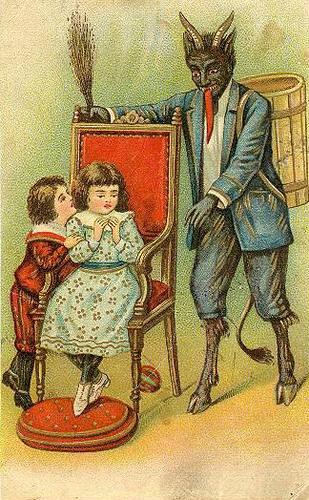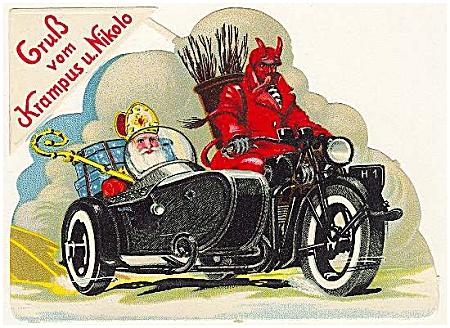Kirsti McG. sent us her correspondence with the manufacturer of these:


Kirsti, who saw these on the grocery store shelves in Scotland, wrote to complain that the company mascot, Mr. Wasabi, “pack[s] together practically every stereotype about East Asians possible, from wooden toe sandals to buck teeth to samurai swords to kung fu…” (check out the website to see him animated).
Kirsti got a letter back castigating her for daring to be offended by the character. They told her that hers was the only complaint they’d ever received (implying that she was crazy or over-sensitive) and that she was trying to make them into an “enemy.”
They also used the “some of my friends are Asian” response, explaining:
…we have been cooperating with the Asian manufacturing company for 4 years, we have a registered company in Thailand and Japan in a different line of business, and everybody is delighted with Mr. Wasabi and the branding. It goes so far that the manufacturer has asked us permission to use the branding in their own markets in Cambodia and, hold your breath, Japan.
Then they accused her of ignorance and racist paternalism:
Maybe you should deepen your knowledge of Asia and the Asian psyche, beyond your rather activist style “I-am-going-to-protect-the-poor-asians-from-these-ruthless-snack-tycoons.”
This is a great example of the backlash that frequently occurs when power is threatened. The company representative didn’t say “Gee, I’d hate to be racist, let me think about this” or even “I’m sorry you’re offended, but this is just what the logo is.” He said, “You are the crazy person here. There is nothing wrong with our logo and how dare you even suggest that it is racist! We are innocent and perfect with our Asian friends and you are totally out-of-line. If anyone is racist, it is you.” This is a common response when someone’s privilege is exposed: Everything goes along just fine until you ask for power relations to be reconfigured, and then you see the resistance. For another example, see our post showing vandalized anti-rape posters.
Kirsti wrote back explaining calmly that their ties to Asian companies does not necessarily mean that their branding isn’t racist and that to suggest that there was a single “Asian psyche” (that is 100% behind their product) is, itself, kinda racist.
She said that the next letter was less accusatory and that he promised to bring the issue up with the board.
Sometimes, even in the face of backlash, collective action can work.
You can contact the peeps at Mr. Wasabi here.
Lisa Wade, PhD is an Associate Professor at Tulane University. She is the author of American Hookup, a book about college sexual culture; a textbook about gender; and a forthcoming introductory text: Terrible Magnificent Sociology. You can follow her on Twitter and Instagram.







